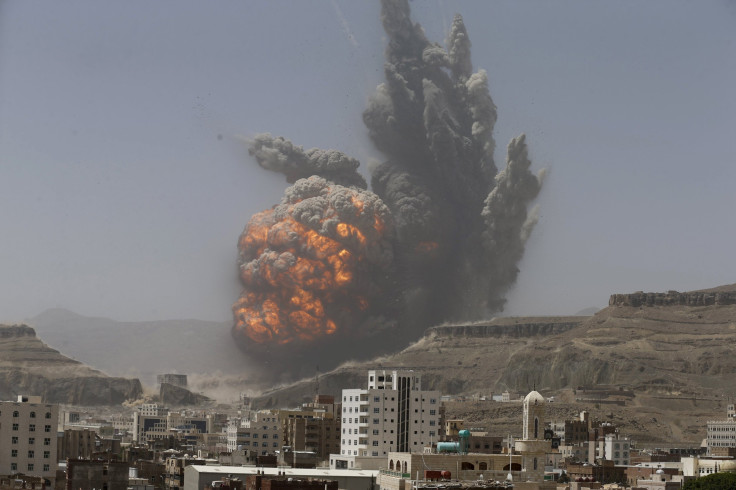Britain Ups Arms Sales To Saudi Arabia Despite Abuses In Yemeni Civil War

British defense manufacturers are selling bombs and missiles to Saudi Arabia at an unprecedented rate despite evidence that they are likely being used against civilians in the Yemeni civil war, according to U.K. government documents released Wednesday. Arms export licenses publicly released by the government show that back-to-back quarterly sales rose from $13 million to a little over $1 billion during a three-month period in late 2015.
“These figures are deeply worrying, showing that the U.K. continued to dispatch huge amounts of weaponry to Saudi Arabia despite overwhelming evidence that the Saudi war machine was laying waste to Yemeni homes, schools and hospitals,” Allan Hogarth, Amnesty International’s head of policy and government affairs, told the London-based Independent newspaper.
Despite assurances from Prime Minister David Cameron that the U.K. has the most "stringent controls" on arms and was working with Riyadh to ensure that civilians were not being targeted, Amnesty International has accused his Conservative government of ignoring the "overwhelming evidence" of civilian targeting, including hospitals and a wedding where more than 130 people are thought to have died, according to multiple media reports.
The Saudi military is intervening in Yemen to fight Houthi rebels, who currently hold the capital, Sanaa. Neighboring Saudi Arabia was invited to intervene in the conflict by the elected government, which has been pushed out since the war began in March last year.
Although international observers had recorded abuses by both sides, U.N. human rights chief Zeid Raad al-Hussein said in late December that a “disproportionate” number of attacks of civilians in Yemen had come from the Saudi-led invasion force, according to the Independent.
“I have observed with extreme concern the continuation of heavy shelling from the ground and the air in areas with a high concentration of civilians as well as the perpetuation of the destruction of civilian infrastructure — in particular hospitals and schools — by all parties to the conflict, although a disproportionate amount appeared to be the result of airstrikes carried out by Coalition Forces,” Zeid said.
In response to the accusation that British weapons had been used in the Saudi Arabian arsenal, British leader Cameron defended U.K. support for Riyadh Monday. “First of all, our relationship with Saudi Arabia is important for our own security. They are opponents of Daesh and the extremism and terror [they spread],” he told BBC Radio 4’s "Today" program, referring to the Islamic State group.
© Copyright IBTimes 2025. All rights reserved.






















